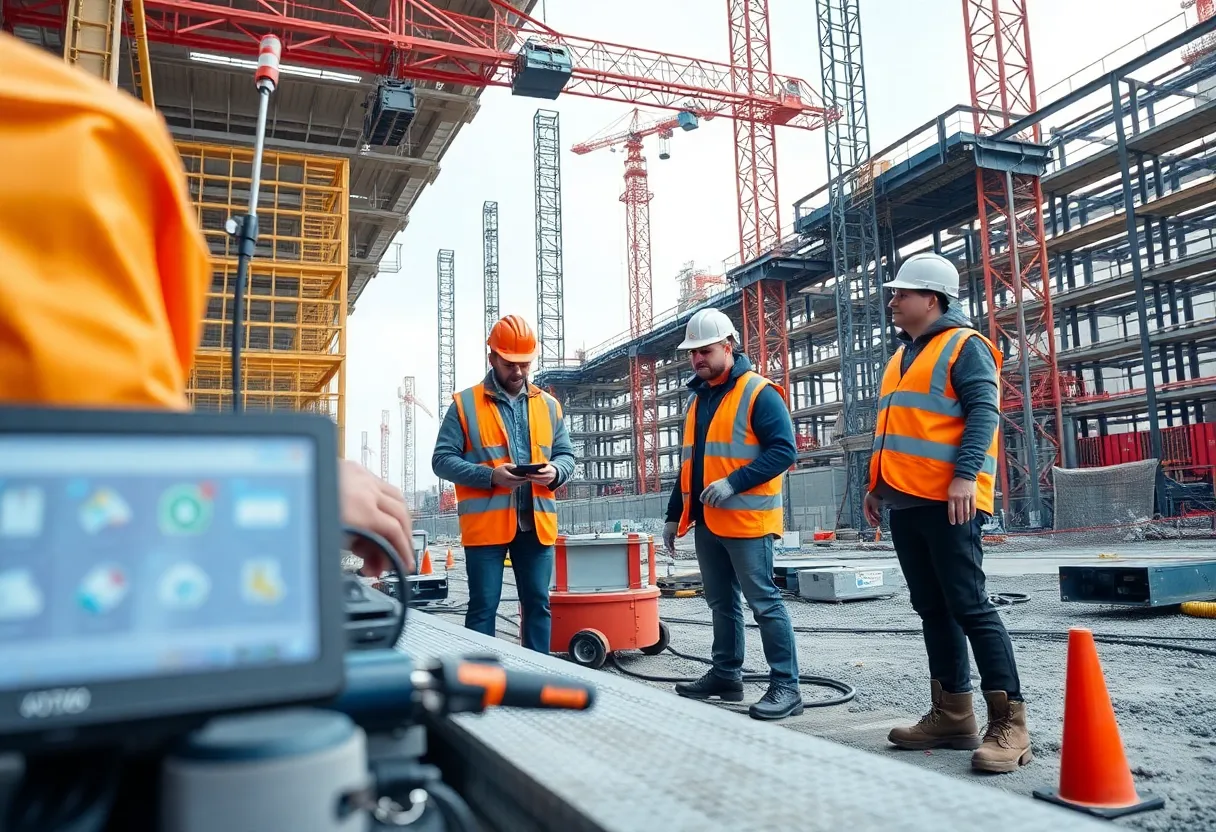News Summary
The construction industry faces significant challenges in project delivery, with productivity decreasing by around 40% over the years. Budget overruns and delays are common, largely due to inaccurate cost estimation during the project planning stage. The need for accurate and timely data is emphasized, as it aids in decision-making and risk management. Innovations like AI and real-time monitoring solutions are highlighted as key to improving forecasting and project outcomes in an evolving market.
Declining Construction Productivity Calls for Better Data Management and AI Solutions
The construction industry is grappling with persistent challenges in delivering projects on time and within budget. Despite extensive efforts to enhance performance, productivity has dropped by approximately 40% over recent decades. This decline highlights the ongoing issue of budget overruns and delays which plague many construction projects, pointing towards systemic problems inherent in project execution.
Challenges in Project Execution
Budget overruns can be traced back to various challenges, with a key contributor being the estimating phase of projects. Many construction companies struggle to achieve accurate cost estimations due to a host of unpredictable factors, including fluctuating material prices and labor market uncertainties. Moreover, site-specific conditions further complicate the estimation process, leading to a significant risk of cost overruns.
Research conducted by the International Journal of Innovation, Management, and Technology indicates that poor cost estimation is a primary factor behind these overruns. This pattern presents a clear need for improved data management and strategic decision-making methodologies within the industry.
The Importance of Accurate Data
To alleviate uncertainties and enhance decision-making, accurate and timely project data is essential. Proper data collection during the estimating phase can significantly improve the accuracy of project forecasts. Utilizing modern jobsite monitoring solutions enables continuous observation and yields insights on project progress, resource utilization, and potential issues.
By incorporating real-time data analysis throughout project lifecycles, contractors can refine their construction estimating accuracy. These practices allow teams to make proactive adjustments in project timelines and procurement strategies based on insights obtained from data monitoring, effectively mitigating risks that arise during project execution.
The Role of AI in Construction
Artificial Intelligence (AI) is emerging as a transformative tool within the construction sector. Its capability to analyze large datasets enhances accuracy and reliability in budget management and forecasting. Through AI, teams gain the ability to assess extensive historical and real-time data, which helps uncover patterns necessary for early risk identification.
Furthermore, AI can simulate various project scenarios, offering proactive adjustments that prevent overruns and delays. By embracing technologies related to real-time construction monitoring, jobsite data analytics, and AI-driven estimation, construction companies can significantly improve project outcomes.
Embracing Innovations for Better Outcomes
Improved forecasting accuracy and proactive issue management empowered by these technologies allow construction teams to deliver projects that adhere to timelines and budgets more consistently. A well-managed approach to project data diminishes unforeseen problems and financial overruns, making it crucial for construction firms to adopt these advanced technologies.
The construction industry stands at a crossroads as it seeks greater efficiency, productivity, and competitiveness. By integrating advanced technologies into daily workflows, companies can reshape standard practices and achieve better results.
Balancing Human Expertise and Technology
Collecting data on project costs, materials, staffing, and timelines in a precise manner is essential for effective project management. Companies face the challenge of maintaining a balance between human expertise and technological advancements. Training and adaptation to new technologies, such as AI and automation, will be key to overcoming resistance from teams accustomed to traditional methods.
While the upfront costs of implementing new systems may seem substantial, the long-term benefits associated with increased efficiency and productivity make them a worthy investment. Regular audits can help maintain a healthy balance between automation and human oversight, ultimately leading to optimal results in construction projects.
In conclusion, the construction industry is in dire need of new strategies and tools to combat declining productivity and budget overruns. By focusing on data management and leveraging AI solutions, construction firms can enhance their project execution and ensure a more successful future.
Deeper Dive: News & Info About This Topic
Additional Resources
- ENR: Leveraging Project Data to Supercharge Construction Estimating
- G2: Best Construction Estimating Software
- Autodesk: AI in Estimating
- McKinsey: AI Power Expanding Data Center Capacity
- Business.com: How Virtual Reality is Changing Construction
- Wikipedia: Construction Industry
- Google Search: Construction Estimating
- Google Scholar: Construction Productivity
- Encyclopedia Britannica: Construction Industry
- Google News: Construction Technology
Author: Construction CA News
The CALIFORNIA STAFF WRITER represents the experienced team at constructioncanews.com, your go-to source for actionable local news and information in California and beyond. Specializing in "news you can use," we cover essential topics like product reviews for personal and business needs, local business directories, politics, real estate trends, neighborhood insights, and state news affecting the area—with deep expertise drawn from years of dedicated reporting and strong community input, including local press releases and business updates. We deliver top reporting on high-value events such as the Rose Parade, Coachella, Comic-Con, and the California State Fair. Our coverage extends to key organizations like the California Building Industry Association and Associated General Contractors of California, plus leading businesses in technology and entertainment that power the local economy such as Apple and Alphabet. As part of the broader network, including constructionnynews.com, constructiontxnews.com, and constructionflnews.com, we provide comprehensive, credible insights into the dynamic landscape across multiple states.


